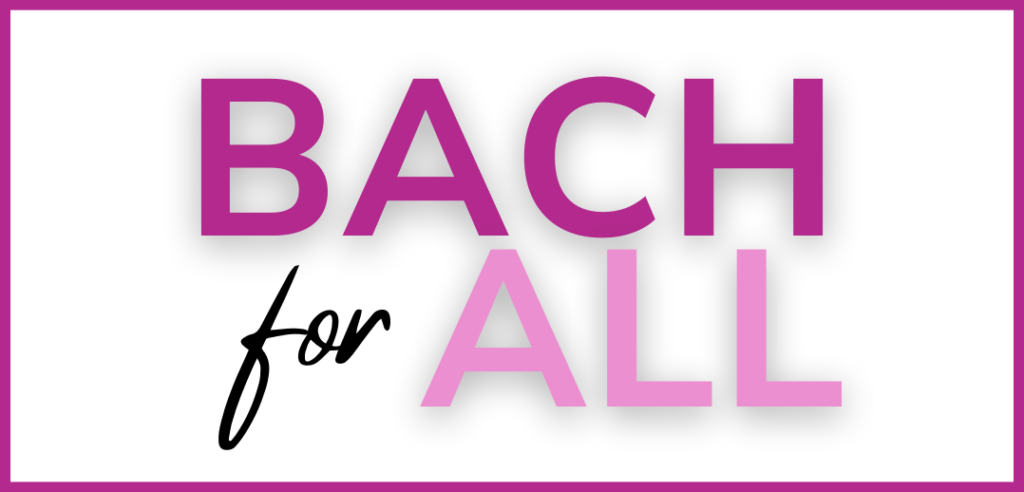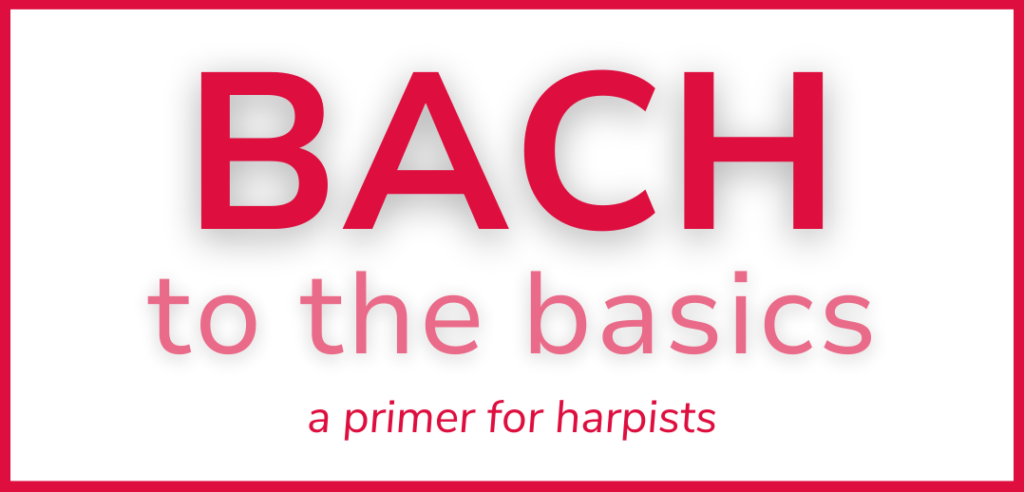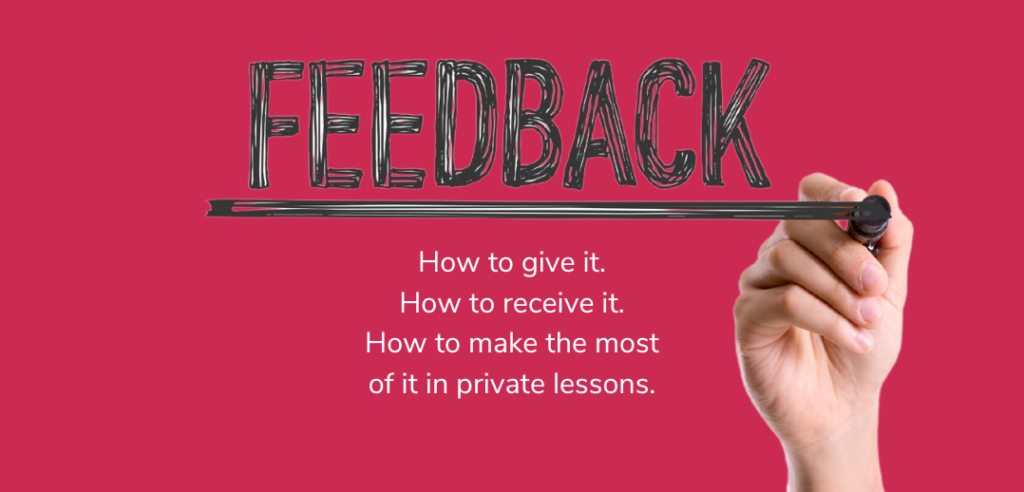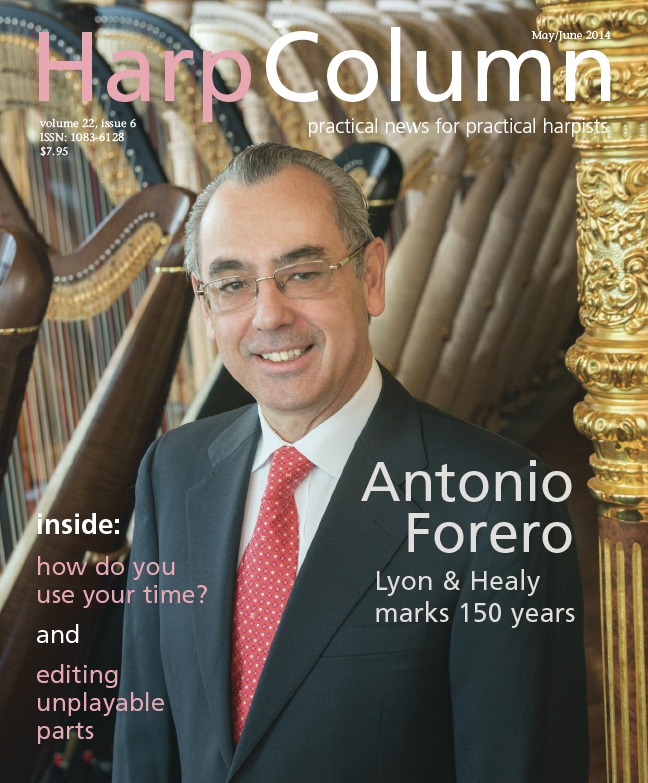—by Kirsten Carrell Osborne
Throughout my childhood, my mom often used the phrase “work smart, not hard.” But it wasn’t until I became a professional musician that I truly understood the value of those words. The concept is simple: find the most efficient way to complete tasks and maximize the value of your time. Don’t waste time by taking the long way, but instead look for the most straightforward path. Though the concept is simple, effectively valuing your time can be one of the trickiest parts of a freelancer’s job.
When I first began the tenuous journey from student harpist to professional harpist, the concept of charging for my time was foreign. I was accustomed to taking any and all gigs at most any price, for the experience and the sheer love of playing the instrument in front of an audience. I spent countless hours emailing with prospective clients and students and playing free gigs in hopes of future paid opportunities. I had gig blinders on and I couldn’t see how much of my time was being wasted.
I am not alone. Many musicians struggle to adequately value their time and experience. How can we minimize our time spent working and maximize the value? How do we avoid spreading ourselves too thin? How can we consistently work smart and not hard—or at least not quite so hard?
I can’t put a dollar amount on your time. That’s up to you. What I can do is share some of the ways that I have learned to get more out of my time. After all, time is money.
Playing for Exposure
There’s not a professional musician out there that hasn’t been asked to play for free in exchange for professional exposure, but what does that mean and when, if ever, is it worth your time? Exposure is generally presented to musicians as an opportunity to pass out business cards, network with potential clients, and create interest in your talent. But as the saying goes, “You can die from exposure.”
There are important factors to consider when deciding if an unpaid “opportunity” is worth your time. First, choose relevant events that match your clientele. If your target market is brides and the event is the grand opening for the new zoo, it is not likely that you will reach your audience. You might encounter a future bride, but chances are, no one at this event is thinking about a wedding. Instead, choose events that connect you with your target market at a time when they are actively planning their upcoming event—play for a floral shop when brides are there for wedding appointments or a luncheon for event planners.
Next, ask yourself if there will be time to network. Many events may seem like perfect opportunities to connect with your target market, but upon closer consideration they may fall short. You are a harpist who plays many corporate engagements and there will be many CEOs in attendance at the event. This sounds like a good opportunity, but it may still miss the mark. If attendees of the event are kept busy with a tight schedule of speeches and toasts, chances are they won’t have time to pick up your business card and will be too busy for event planning. Choose events that allow plenty of free time for networking with guests and specify the amount of time that you will be able to mingle during the event. It is also important to consider who actually does the planning and booking of events. If you’re playing for CEOs then you are missing your target audience—the event planners. In order to make sure events are worth your time, focus your energy on gathering business cards and making contacts for follow-ups after the event. With this information, you can maximize your exposure by contacting event planners with your information at a later time. Use the connection that you made during the event as a springboard for further, more productive contact.
Finally, consider alternative forms of compensation. Ask that your name and information be included in any event programs and advertisements. Specify that your presence be announced during the event, and that attendees consider you for their next special occasion. Bring more than just business cards; CDs to sell and brochures are more memorable and harder to lose or discard, which will keep your contact information fresh in their minds and close at hand. Even though money isn’t changing hands, insist on a contract for unpaid jobs. This will insure that both parties’ needs and expectations are met.
Correspondence Overload
We’ve all been there: it’s Sunday night, and you’re settling in to watch TV before going to bed, when you receive a call from the mother of the bride who wants to discuss her daughter’s upcoming wedding. The wedding is still six months out, but she is suddenly frantic to choose music. Before you know it, you’re engaged in a long debate of “Bridal March” versus “Canon in D.” Client phone calls may overwhelm your personal time if you don’t lay down ground rules. Setting limits on phone calls is easy to do if you set appropriate expectations from the beginning. Establish hours by stating them in email taglines and voicemail greetings that clearly specify when you will respond to phone calls.
email is inescapable in this day and age. Most of us wake up to it over morning coffee and fall asleep to it at night. In our society’s growing 24/7 work culture, clients expect immediate responses to their gig requests. But how do we avoid spending all of our time chained to email accounts via smart phones, tablets, and computers? Work smart.
Working smart means not reinventing the wheel. Reduce the time you spend responding to gig request emails by crafting one pre-written response that you can cut and paste, personalize with a few quick changes, and send. Create PDFs of your pricelist, repertoire list, contract, and other pertinent information to send along with your response. Having this information on hand will not only save you time, but will also insure that all of your communication is clear, concise, and professional.
Another way to avoid the unwanted barrage of client questions via email and phone is to schedule client consultations. Clients are understandably eager to discuss the details of their event, and a consultation establishes a time for those questions and discussions. I emphasize that consultations are a maximum of 30 minutes so that no time is wasted. This appointment allows for a focused discussion on the client’s event and music selections. Moving the conversation from email to a scheduled consultation helps the client concentrate on specific questions and limits the amount of emails and phone calls in the months prior to the event. Clients feel more confident once they have met with you in person and tend to contact you less as a result. The consultation is also a good time to set expectations about frequency of communication. Let the client know when they will next hear from you, as well as how and when it is best to reach you.
Work Smart, Teach Smart
Teaching harp can be a rewarding, interesting, and stable way to earn income as a musician. But when you maintain a tight professional schedule, it is important to establish studio rules to insure that your time is not wasted by last-minute cancellations, no-shows, and scheduling issues.
Harp students often become like family to teachers, and it can be difficult to enforce rules with family. One way to avoid this difficulty is to set guidelines about payment, cancellations, and arrival time from the first meeting. Having a firm cancellation policy is important to guarantee that you are properly compensated for your time. There may be nothing more frustrating than a last-minute cancellation when you have already scheduled your day and may have even made plans for that income. Students may not realize the impact of a last minute cancellation and it may be uncomfortable to explain after it has occurred. There are several strategies you can use to avoid this awkward moment and reduce the amount of time you spend reminding parents that their payment is due.
Have your policy in writing and ask parents and students to sign it annually as a reminder of your non-refundable cancellation policy. Require monthly or quarterly lesson payments up front. When students pay for their lessons ahead of time, they are less likely to cancel. It may be simpler to collect upfront payment if you offer a variety of ways to pay. It’s easier than ever to accept payments by credit card or PayPal, and it may be more convenient for students and parents who no longer carry checkbooks or cash.
Another less obvious way in which teaching can cost you valuable time is the dreaded every-other-week lesson. While we want to accommodate student’s needs, it is also important to consider the impact that a biweekly obligation will have on your schedule. If a student takes a high-priority time slot just twice a month, you may be losing money in the off-weeks by not being able to fill that space. There are several ways to handle this scheduling issue. While it can become complicated, one way to smooth out your schedule is to pair that student with another biweekly student and alternate their weeks. Allow the student to continue biweekly lessons only as long as you fill the off-weeks so that your schedule stays balanced. You may discourage biweekly lessons by charging a slightly higher rate and incentivizing weekly lessons. It also compensates the harp teacher for a gap that now appears in the schedule on the off-weeks. If you decide to not charge more for biweekly lessons, you may choose to prioritize the schedules of weekly students. This makes sure that weekly income remains steady and biweekly income is a supplement.
Practice Time
After you check your email, return phone calls, update your website, teach lessons, and meet with clients, you may hardly have time to tie your shoes, much less practice! But practicing may be the best way we can spend our time; after all, playing the harp is what we get paid to do. Ample and focused practice time ensures that we maintain our professionalism by arriving fully prepared for every engagement. So how do we make time to practice and more importantly, how do we make the most of our practice time?
Practice time won’t happen if you don’t make it a priority. Most harpists have experienced the well-intentioned afternoon of practice that gets quickly consumed by emails, phone calls, and other unexpected tasks. One way to make sure that you practice regularly is to schedule it like an appointment. Put it into your calendar with a reminder just as you would a gig. Respect the appointment as if it were a paid obligation that you can’t miss. Schedule it for a time that you will not be interrupted so that you can stick to it and make the most of it. Choose the time that you are at your best; if you’re a morning person then schedule it first thing after breakfast, and if you’re a night owl, pencil it in after everyone else goes to bed in the evening. Once practice time becomes a part of your schedule, it will be a habit, and just like brushing your teeth, it will be hard to forget or put off.
I could devote an entire article to efficient practicing, but effective practice all comes down to being mindful. One way to get focused is by setting a practice plan before you start. Decide what needs the most attention and start there. Set goals for your practice and concentrate on accomplishing only those goals. Practice time is often wasted by jumping from one issue to the next and diluting your focus. You will gain greater benefits from the slow, mindful practice of one measure than playing through the entire piece over and over. Never allow yourself to practice mistakes as this will increase time spent relearning material.
Another way of working smart is to take frequent breaks during practice. Staying relaxed and focused will maximize the value of your time and help you avoid mistakes that happen as a result of mental and physical fatigue. Taking time to stretch, breathe, and drink water will guarantee that your practice is beneficial and not counterproductive.
Twenty-four hours. Everyone gets the same number each day to work and have fun. Work smart and you’ll have more hours to play. •
Kirsten Carrell Osborne is a professional freelance harpist and teacher in Roanoke, Va.















